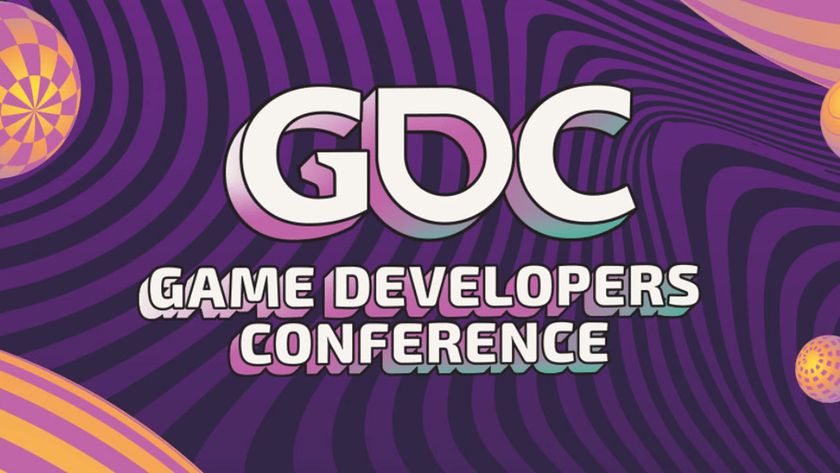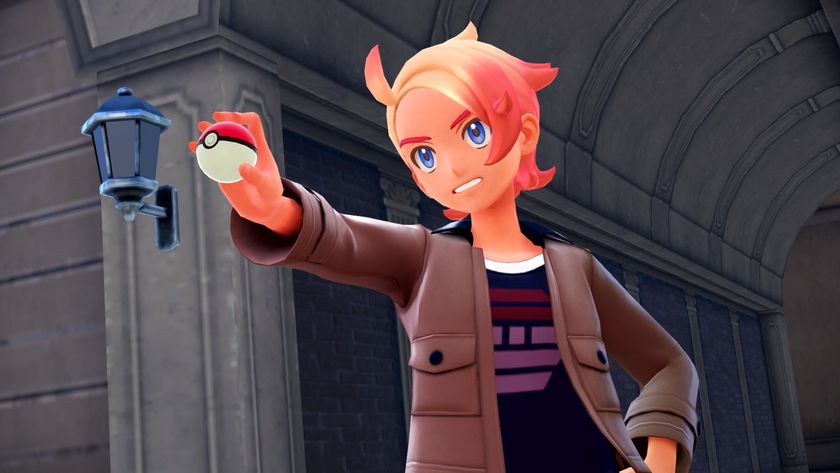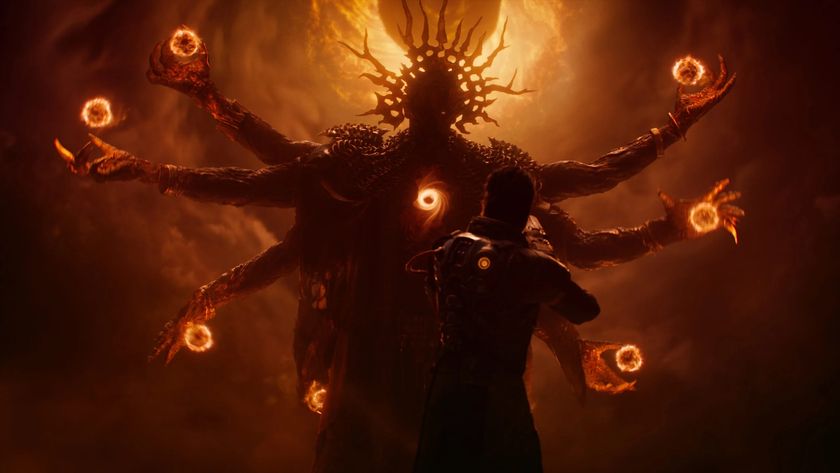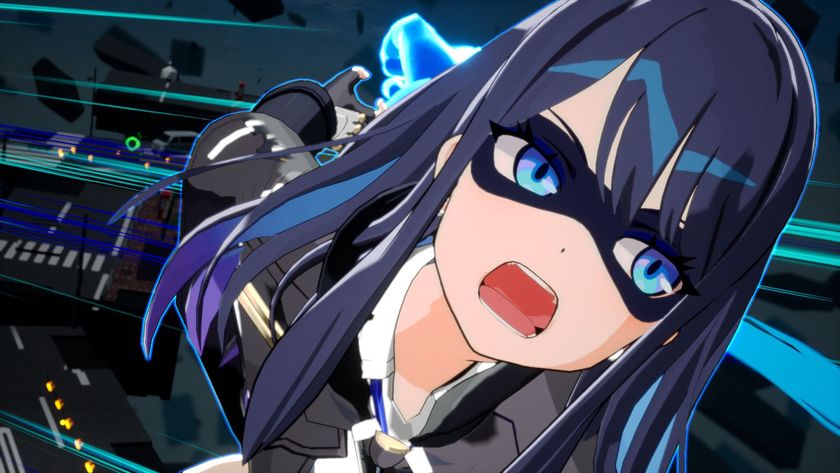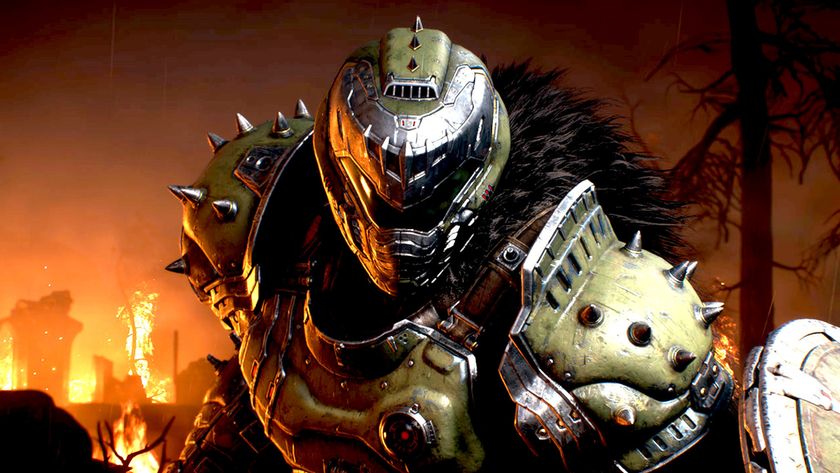"You know you're going to be a part of Nintendo history": the philosophy behind the Nintendo World Championships 2017
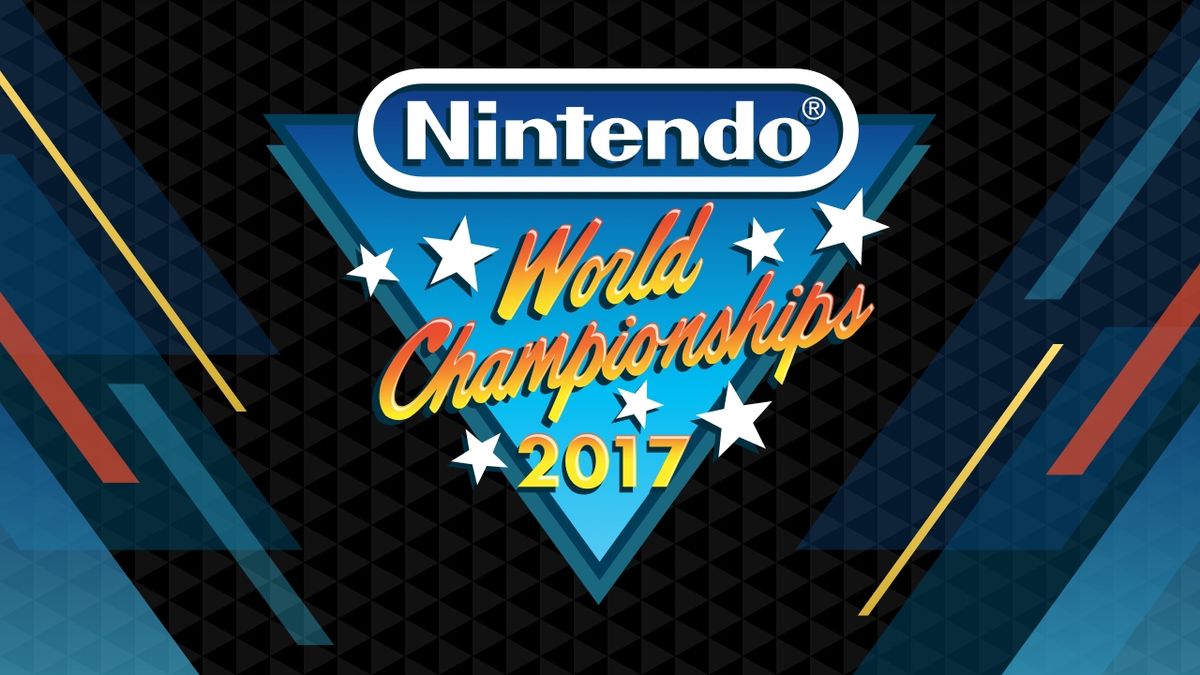
It was a night many will never forget. On October 7, 2017, a bright-eyed group of 24 contestants ranging from age 8 to 33 battled in New York City for Nintendo superiority, until one was crowned the victor: Thomas "Ito" Gonda, who narrowly beat the returning champ John Numbers (real name John Goldberg) in an intense Super Mario Odyssey finale. So went the Nintendo World Championships 2017, a multi-game gauntlet rife with Nintendo nostalgia and modern mainstream appeal alike.
The show's success is something of a hat trick for Nintendo of America, who previously hosted the event in 1990 and at E3 2015 to joyful fanfare. I'll be sharing my experiences at the event and my interview with the winner soon - but before the show, I got to chat with two head honchos from Nintendo of America: Bill Trinen, Director of Product Marketing and a lovable Nintendo Direct meme machine, and Doug Bowser (no known relation to King Koopa), Senior Vice President of Sales & Marketing. Read on to find out why they brought the Nintendo World Championships back, potential plans for future tournaments, and what game Bill Trinen will beat you at every time.
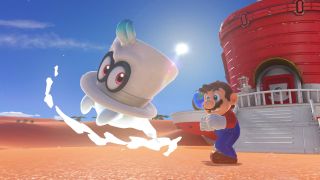
12DOVE: What's the selection process for the games at the Nintendo World Championships?
Bill Trinen: We have a team internally at the Treehouse. And it's not easy. The reality is that you've got to look at it from a few different perspectives. Because you have to look at it from a competition perspective: can you come up with a rule set around a game that is easy to understand, the objective is clear, and it makes sense. What's going to make for good gameplay, what's fun to play. Obviously, we still want it to be fun. The other is when you're doing a livestream - we pay a lot of attention to "Is it fun to watch?" And then from an overall structure standpoint we also look at how, "Where is the excitement and the drama going to come from?"
We do have to also look at it from a tournament structure and say, "How do we get from a certain number of players down to the next round in a way that makes sense, so that we've got a smooth-running tournament?" We also like to bring out the unexpected, particularly from some of that classic content.
Would you classify today's event as esports?
Doug Bowser: I would say esports could mean a lot things to a lot of different players. If you put it on a spectrum, there's one extreme which is the underwriting, the sponsorships, the major events obviously - I know even pro football teams are getting involved. The other end is what I would just call 'competitive fun'. I'd say we lean more towards the competitive fun side of things. We've got content that's great on a couch with your friends. And you could play and have a great time. But we've also got content that applies to a great tournament environment like this. We're learning our way through this, and really understanding how our content best plays in these types of environments. But it's definitely more competitive fun.
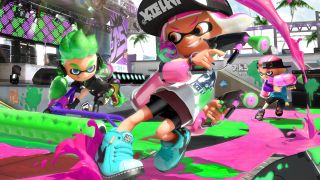
How do Nintendo games find the perfect balance between accessibility and hardcore challenge or competition?
Trinen: That's one of the great strengths of our dev teams in Kyoto. They take a unique approach to gameplay. They always start with sort of 'what is that core interaction within the game' and they build out from there. The foundation of every game is something that's a very core basic element that's been refined over and over. And that's, I think, what makes Nintendo games feel so magical. But they've also been developing games for a long time. They all play games. They all know what they want out of a game. And they all know, "I don't just want a fun, easy game. I want something that's going to challenge me."
Because challenge is certainly where you're going to get the satisfaction. If there's not much challenge, you're going to be like, "Oh well, that was nice. It was fun. I enjoyed it." But as a player, the challenge is what brings you the satisfaction. And certainly, Nintendo, historically, from when we first put two controllers into the NES package, has been about sitting down on the couch together and playing together. And the challenge there is what's also really important. And I think that's just going kind of back of those roots of competitive fun that Doug was talking about.
Sign up to the 12DOVE Newsletter
Weekly digests, tales from the communities you love, and more
How much of the finale of the movie The Wizard set the stage for the Nintendo World Championships?
Trinen: I've been with Nintendo a long time, but I was not with Nintendo in 1990. [laughs] Potentially they were working on the two in tandem; I know there's one guy [at the event] today who actually worked on those 1990 World Championships. In 2015, as we were trying to decide what we wanted at E3 and from a tournament standpoint, it being the 25-year anniversary of Nintendo World Championships - we decided we wanted to bring that back. But because there were a lot of people internally who weren't familiar with it, and when they asked us, "Okay, what is this?" we said, "Well, do you remember The Wizard?" [laughs] So we certainly referenced it.
Would you hope to hold the Nintendo World Championships annually going forward?
Trinen: You know, in 2015 we did it and we saw the reaction. People loved it, and they were really glad it was back. So we knew afterwards that we didn't want to wait too long to do it again. We wanted to do another one. But we weren't really sure - is it an annual thing? Is it every other year, or something else? We'll take a look at how people respond this year. But I definitely don't think we're going to wait another 25 years before we do another one.
Bowser: We're doing a lot of experimenting. If you look at E3 2017, as an example, we got three standalone tournaments, with Splatoon 2, Arms, and Pokken Tournament DX. That was another unique format that was really fun and engaging. Not only for the players, but for people to watch. We're going to continue to learn our ways as we go forward.
Do you think you'll ever host the NWC somewhere outside of America?
Trinen: That's also been talked about. We don't have anything yet. I would actually love to be able to go do it at Universal Studios, Japan, or something. It'd be really cool. But, like I said, we're just having fun this year. We'll see what people think and then maybe we will decide, "Is it back next year, or is it back two years down the road?" And start planning around that.
Do you guys like the idea around the games changing between each competition? Do you want players to go in blind every time?
Trinen: Yeah, absolutely. [laughs] That's part of what makes developing the tournament fun, that game selection process and testing it all out. From a player perspective, if you know everything that's in there, and you know what format it is, and you know what game you've got to practice, it starts whittling its way down to sort of a smaller and smaller group of people that could potentially win the thing.
From our perspective, the ideal setup makes it so that basically anyone has an opportunity to enter and compete in a qualifier, and then you never know who's going to win. And certainly we've tried to do that with the Best Buy qualifiers and holding those across the US, along with bringing in some folks from overseas through our invitees. For me, I think, part of the fun and part of the drama is that question of "What's next?" And for us, it's not about who could be the best at a specific game, it's really about who's the best all-around player. How do they deal with this rapid succession of games when they don't know what's coming? That's the fun of the Nintendo World Championships.
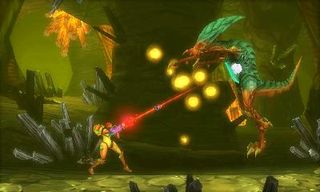
In 1990, the grand prizes were a $10,000 savings bond, a car, a big-screen TV, and the trophy. With the modern NWC, are you trying to focus more on prizes that are about emotional resonance, like getting to meet Shigeru Miyamoto, rather than cash value?
Trinen: I think for a lot of people, it's just the ability to be a part of Nintendo history. And what's funny is, if you look at who has qualified in this year's tournament, we have people who drove from Canada down to Seattle to participate in the qualifiers. We have people who came in second in one city and flew to another city for those qualifiers. We had people who spent two full days at the qualifiers; every time their score got beat, they would go back, get in line, and they would come in and compete again. That's the kind of passion that we want to reward. We want people who want to be here. Because it is an amazing memory that you're going to have for the rest of your life. And because you know you're going to be a part of Nintendo history.
Can you tell me more about the plans for Nintendo Versus, and what kind of presence you're trying to create with that brand?
Trinen: Over the last couple of years we've - kind of behind the scenes - gotten a bit more supportive of certain Smash tournaments that we've been partnering with and whatnot. One of the things we wanted was a place where we can help bring some of those stories for specific games to life, on a place where the people that are there really want to hear about some of those competitive tournaments and what's going on with competitive games. Obviously we knew we were going to be doing Nintendo World Championship. We wanted to have a place, where we could [do play-by-plays] during a tournament when storylines are happening - a really rapid succession of, "This is what's happening now, this is what's happening now, this is what's happening now." And when you've got millions of followers on Twitter, maybe not all of them want that kind of rapid update.
So the Versus channel becomes a place where we could do that for the people that want it. And then some of the pertinent content can get carried over to the main channel, where it could reach a larger audience. But what it does is it gives us a place to talk to our fans who are really into those tournament scenes and also help shine a light on that with a larger audience on a select scale.
Out of curiosity, what's the most competitive that you guys have ever been in a game before?
Trinen: Together? [laughs]
Bowser: Something that's not college football-related. Well, I'll tell the story of when I started gaming. For me, I was a Donkey Kong arcade master. I would sit in my university's student union building and just play non-stop so I could hold those first five high score positions. Hands down. Loved it. That was probably as competitive as I got. Through the ages, I came back into gaming. I've just enjoyed more of that couch co-op style of competitiveness. It's been a lot of fun. So whether it's on our platforms or our IP, whether it's playing Mario Kart or Splatoon 2 with my kids, we love that right now. Or I've got friends that I still smack talk with and play FIFA with. That's really my style of competitive gaming.
Trinen: So, having worked with Nintendo a long time, we had a tradition in the Treehouse where we would play Super Smash Bros. Melee on GameCube every day, during lunch and after work. We did that every day for ten years. [laughs] We have a lot of people there, so we weren't playing one-on-one - we were playing four-player, with items on. It was a blast. We were very competitive with that. And then, as a result of that, there have been times I've entered tournaments in Smash Bros., both with Melee and the Wii U game. But I would say probably the most competitive that I've been is in Pikmin 3 Bingo Battle. Because it's amazing. It is so, so good. To the point where people don't like to play me. [laughs] I love it.
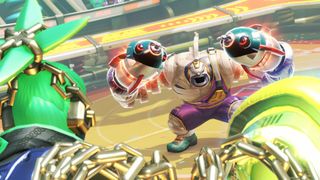
What about the hardest single-player challenge you've ever beaten?
Bowser: I'm going to go with The Legend of Zelda: Breath of the Wild. I don't know if I would call it the hardest, but it's the most fulfilling. And I'm still playing just because of the vastness of it, and the different ways that you can play and engage in the game. I really, really enjoy it. There are times that I'm worn down from particular battles, so I just back off and I go wandering somewhere else and explore and learn new things. Kind of recharge my batteries and come back for that battle. And I'm not done yet. It's just been a continuous experience. It's just so rich.
Trinen: For me, probably most recently actually, would be Arms. There are different difficulty rankings that go basically up to about 10. And what you find, very quickly, is once you get above four, the AI is really good. [laughs] Really good. To the point where trying to do anything above a seven, is... I mean, I'm sweating. [laughs] And it's not from the punching, it's just from the stress. It's just like, "Oh, come on!" The single-player in Arms is one of the most challenging single-player modes I've seen in a long time.
Lucas Sullivan is the former US Managing Editor of 12DOVE. Lucas spent seven years working for GR, starting as an Associate Editor in 2012 before climbing the ranks. He left us in 2019 to pursue a career path on the other side of the fence, joining 2K Games as a Global Content Manager. Lucas doesn't get to write about games like Borderlands and Mafia anymore, but he does get to help make and market them.
